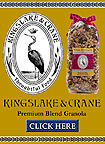NAD
reviews claims by Russian Standard Vodka, following challenge
by STOLICHNAYA IMPORTER, Marketer Matter Remanded to NAD by
Federal Court; NAD Recommends Russian Standard Modify Certain
Claims
New
York, NY - Feb. 14, 2008 - The National Advertising
Division of the Council of Better Business Bureaus
has recommended that Russian Standard, maker
of Imperia vodka, discontinue claims that Stolichnaya
- a competing vodka - is distilled in Latvia, rather than
Russia. NAD has further recommended that Russian
Standard modify/qualify claims that suggest Stolichnaya
is not "authentically" Russian.
Claims about Stolichnaya made in press releases by
Russian Standard and in a newspaper article
that appeared on Russian Standard's Website were challenged
by Pernod Ricard USA and Allied Domecq USA,
which market and import Stolichnaya. Specifically,
Pernod maintained that Russian Standard
had falsely denigrated the Stolichnaya brand name by
communicating that Stolichnaya is "distilled and
bottled in Latvia" and is "not authentically Russian."
Subsequent to the filing of the challenge, the advertiser filed
a declaratory judgment in federal court.
The challenge was initiated at NAD, the advertising
industry's self-regulatory forum, in June 2006. In response
to NAD's inquiry, Russian Standard
asserted that the advertising at issue was not "national
advertising" within the scope of NAD's jurisdiction.
NAD determined that the challenged claims appeared
in press releases that were distributed nationally and/or published
at the Russian Standard Website and were, accordingly,
national advertising in character and scope. However, because
the same claims challenged at NAD had become
the subject of a lawsuit pending in the U.S. District Court
for the Southern District of New York, NAD
administratively closed its case, with leave to re-open its
review should the court decline to rule on the claims at issue.
Subsequently, the federal court stayed the case, pending resolution
of the NAD proceeding, and NAD
re-opened its review.
"Allowing NAD to complete its decision
regarding Stoli's authenticity as a Russian vodka would
allow it to set advertising standards for the industry on an
important issue. The public and industry would benefit greatly
from hearing the NAD's opinion on the issue,
especially after so many resources and time have already been
poured into the investigation," the court stated.
In the course of the NAD review, the challenger
explained that Stolichnaya vodka is produced for Pernod
Ricard by Spirits International, N.V. SPI
and its affiliates produce Stolichnaya at two distilleries,
both of which are located in Russia and all Stolichnaya
vodka products are made from Russian wheat, which is distilled
with Russian water and Russian yeast. After the vodka has been
produced at the Russian distilleries, SPI ships the vodka in
bulk to SPI's bottling plant in Riga, Latvia and at the bottling
plant, the vodka is filtered to remove any particles that may
inadvertently entered the tanks during the shipping process,
bottled, labeled and packed in cases for shipment to different
markets around the world. The labels, cases and other packing
materials for Stolichnaya vodka products are customized
as required to comply with the laws and regulations of the specific
countries in which the products will be sold. The challenger
maintained that in all cases, the vodka within the bottle is
unchanged, and thus is genuine, authentic, Russian vodka.
The advertiser argued, however, that the challenger's assertion
that Stolichnaya is merely bottled in Latvia was controverted
by a totality of the evidence. The advertiser further argued
that even if only filtering and bottling took place in Latvia,
those processes detract from the "Russian-ness" of
Stolichnaya. Based on these arguments, the advertiser
maintained that its statements calling into question the "Russian
Authenticity" of Stolichnaya vodka were supported.
NAD examined evidence that included the results
of a consumer survey undertaken by Russian Standard. Following
its review, NAD concluded the advertiser could
accurately claim in its advertising the undisputed facts that
Stolichnaya vodka is filtered, bottled and labeled
in Latvia.
Further, NAD found that the advertiser could
question the "Russian authenticity" of Stolichnaya
vodka in its advertising, as long as the advertiser clearly
and adequately discloses why it believes Stolichnaya vodka
is not truly authentic Russian vodka, i.e., that it is filtered,
bottled and labeled in Latvia.
NAD, however, found that the evidence was insufficient
to support the statements that Stolichnaya vodka is "distilled"
and "made" in Latvia or that Stolichnaya
should "be proud of its Latvian heritage."
Russian Standard, in its advertiser's statement,
said that although the company is "no longer circulating
the prior statements that were the subject of the present challenge,
it will take NAD's recommendations into consideration
in the development of future advertising."
The company stated that it intends to proceed with its claims
in the pending federal court action and to obtain discovery
concerning, among other things, "those aspects of the evidence
that NAD felt had not yet been presented definitively."
NAD's inquiry was conducted under NAD/CARU/NARB
Procedures for the Voluntary Self-Regulation of National Advertising.
Details of the initial inquiry, NAD's decision, and the advertiser's
response will be included in the next NAD/CARU Case Report.














